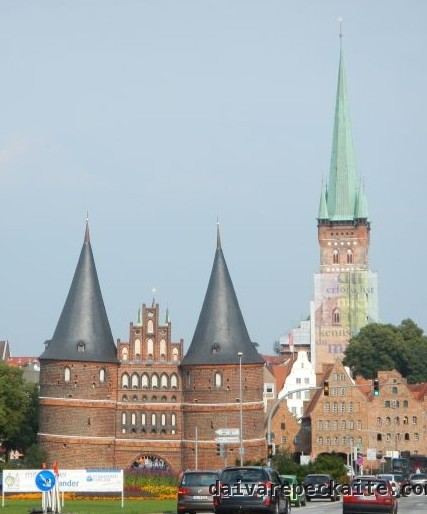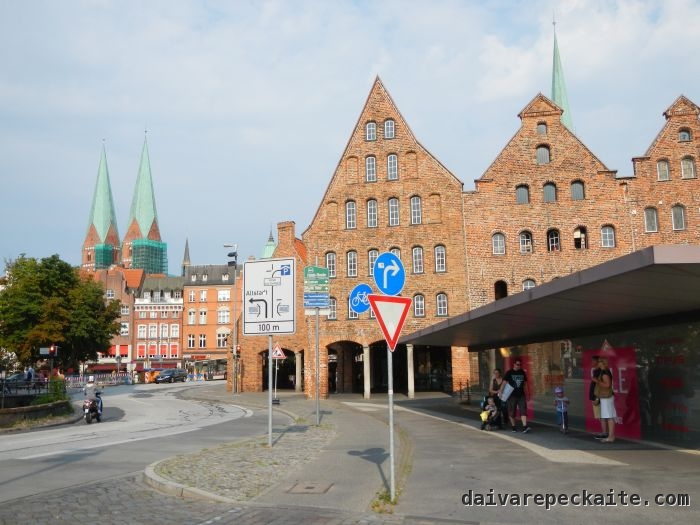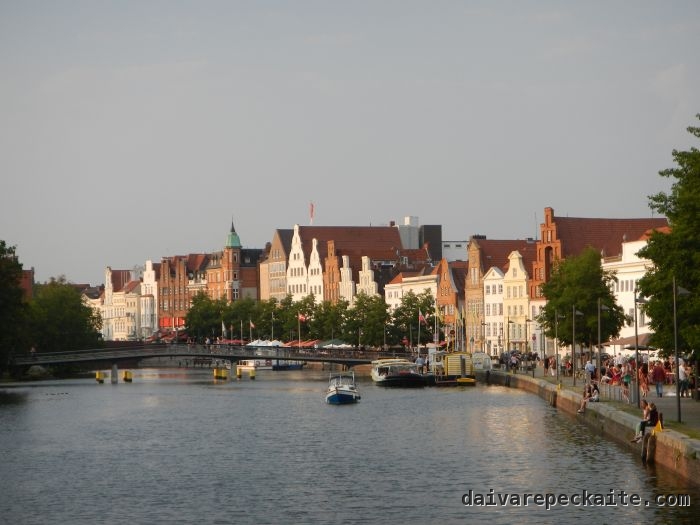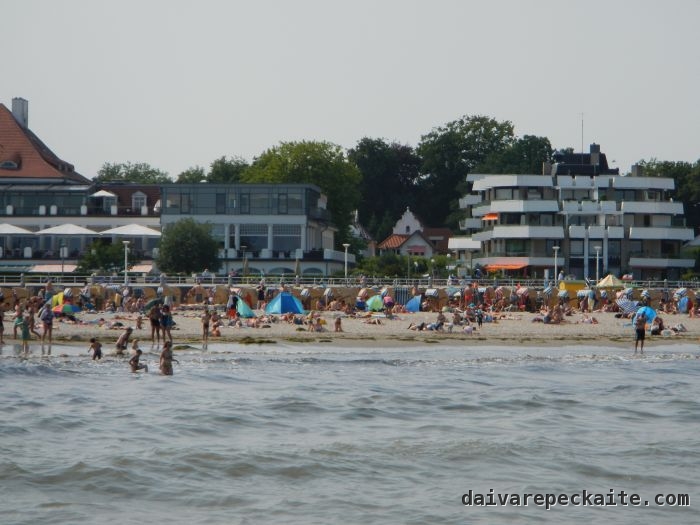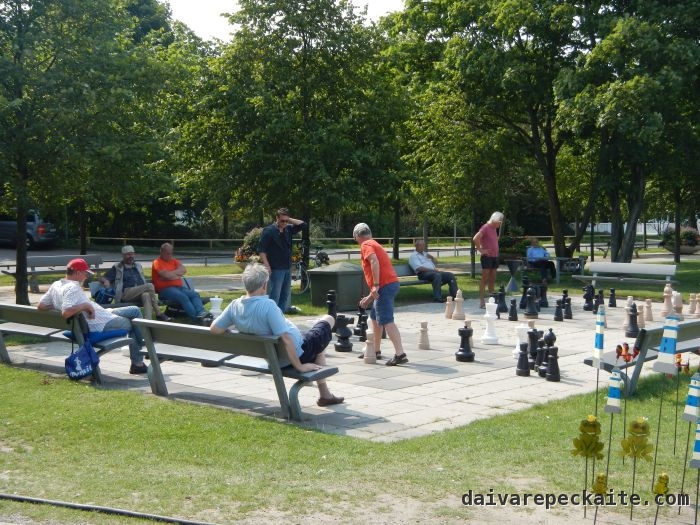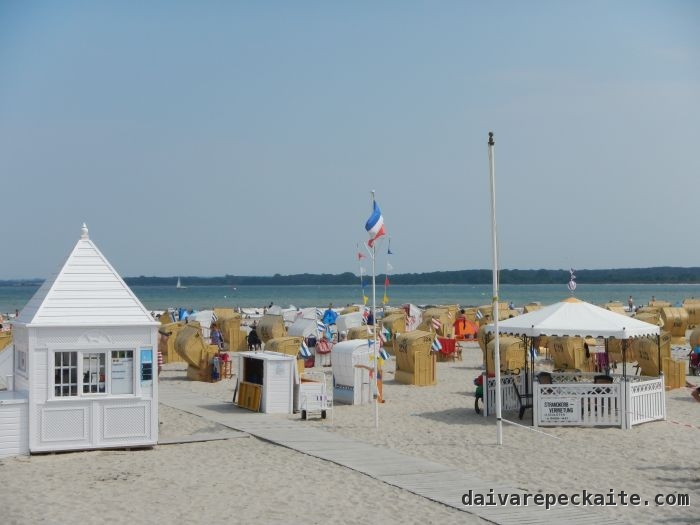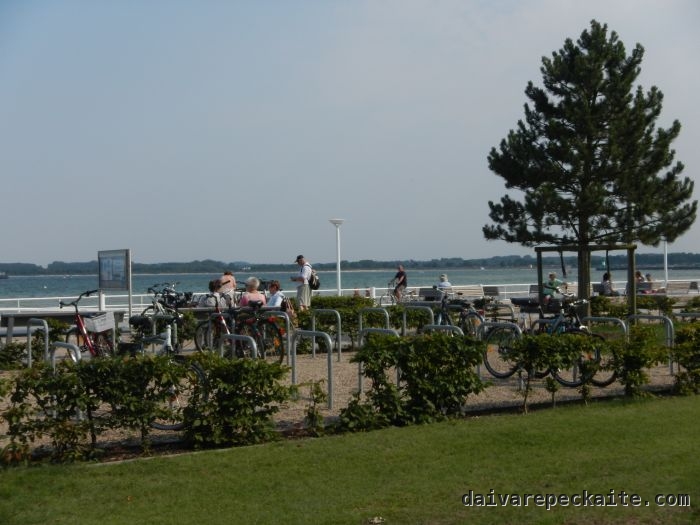What have you heard of Lübeck? I remember it featured in a computer game I used to love, where the task was to build successful Hansa cities and trade among them. Of course, having moved to Hamburg, I included Lübeck in my short-term bucket list.
The city is less than two hours away from Hamburg, and a daily pass, which covers all regional trains in the Schleswig-Holstein area, costs 28 Eur. Great for a day trip. So let′s start!
I went to Lübeck with my friend Jens, also a former Babelian. Although he is a festival photographer and journalist, he, like many people, prefers traveling far away to touring around the city of his residence. So Lübeck was a discovery for both Jens and me.
A port town with a rich Hanseatic history, Lübeck is about the size of Klaipėda, the Lithuanian port city. This is where Teutonic and Livonian knights would leave from in the 13th century to colonize the Baltic coast, including many attempts to conquer Lithuania. Another link between the North German Baltic Sea coast and the Lithuanian one is the life of Thomas Mann, a famous German writer who had lived in Nida. Unsurprisingly, Lübeck and Klaipėda are sister cities.
One of the main tourist attractions is the Holsten Gate, which is very close to the railway station. It frames a cute lush passageway. The gate was supposedly built in the 15th century and is now protected by UNESCO. But most of the Old Town is restored rather than authentic.
On the other hand, not all elements look good together.
There are lots of boring fashion shops and screaming advertisements on the street that leads to the old town from the station.
The city has many churches. Among them, the St. Lawrence church is interesting as it was built on a cemetery for people who died during the 16th century plague, but we could see that some graves were very new. Apparently, the cemetery is in use. As ee walked along some of the main streets, we met a distributor of cat food samples, who looked tired and couldn′t wait to end the day, so Jens volunteered to give away some of his samples to his cat-owning friends. At the end of our trip we met one, so we made a surprisingly easy contribution to the well-being of workers and cats alike.
Two really good drummers were playing on one of the main streets, to the fascination of locals and visitors. But the best part of the trip was walking past a canal, embellished with cute little boats, which locals use for crossing over to the other side.
We saw a circus camp and approached it from behind. Workers were combing ponies and clowns were fixing their make-up before going on stage. At the front side a huge crowd was lining up to enter the camp and watch the performance.
There is also a nice park and many cute cafes for those who have more time.
The train line from Hamburg goes all the way to Travemünde Strand, the beach resort adjacent to Lübeck. It is surprisingly similar to Baltic resorts that I know. Smoked fish, trashy music and lots of people just lying around on the sand.
Abundant algae made the sea water look like miso soup, but I went for a swim regardless.
We turned to a little market between the station and the beach, where we bought smoked fish sandwiches and sat around listening to trashy music, which was blasting from loudspeakers. A giant chess nearby waited for enthusiasts.
Instead of lying directly in the sun or bringing tents or umbrellas like my co-nationals, people here use these cute things (photo below). They are a cross between a chest of drawers and a horse carriage seat. After paying to use one of those, customers unlock them and can sit inside, resting their legs on the drawers.
These things make the beach look like a little market, with booths and boxes of goods.
Entrance to the beach costs 2.5 Eur, but is not strictly enforced. There are few changing cabins or trash bins nonetheless.
The promenade, which stretches along the coast, reminds me of Birštonas, a Lithuanian river resort. Passers-by can feast their eyes at elegant villas and a few cute cafes.
Many visitors, however, stay in an ugly tall hotel building, which stands out from the generally low skyline.
As for cafes, it didn′t look like a coincidence that three cafes had closed and greeted tourists with signs saying that the venues are for rent. I guess business is not going that great.
What kind of vibe did these cafes have? Do seaside resorts have to be all mainstream and cheesy, or would it totally work if someone rented one of these places and opened a cool bar like in Hamburg, or Berlin, or whatever?
Before someone risks with such an idea, Travemünde remains a cute, unpretentious town by the sea, very easy to reach from Hamburg, with space to sit in these beach boxes and swim among algae.


